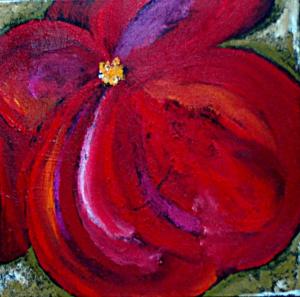To celebrate August McLaughlin’s Beauty of a Woman IV, I’d like to share a few of the poems I’ve written for Jan.
Thanksgiving Morning
Before I forget
I want to write down
how beautiful you looked this morning
Thanksgiving morning
coming down off of the stairs and
turning toward me
in your short sleeved tee-shirt and pajama bottoms
your hair pulled back, a tight smirk, your smile,
holding something delightful within you, secret,
like a child with a bouquet of love
behind your back
ready to spring it on me
your eyes sparkling
the morning light behind you in the stairwell
made you glow for a moment, so ordinary a moment
unexpected but briefly wondrous
better even than us snuggling earlier face-to-face
because I could see all of you.
I thought again how I could not be happier
that there was no other beauty or affirmation
beyond this one,
your presence affirming,
humming through me,
in me
and I was thankful.
~*~*~*~*~*~*~*~*~*~*~*~*~*~*~*~*~*~*~*~*~*~*~*~*~*~
Your Smile
Last night
after we were done and settled
after my breathing had slowed and
your hand had left my chest,
and we lay side-by-side
but apart
I looked at you and
there was a softness in your face
as you smiled, your eyes wet,
your skin smooth, glowing it seemed,
with an aura that held me,
took me quickly,
like a strong but gentle drug.
I felt it surround us, reflect us,
like water does light,
shimmering in a million chaotic sparkles
so that I felt your smile was in me
and that mine must be in you,
felt we were one
inseparable
glowing in higher hands.
Home.
~*~*~*~*~*~*~*~*~*~*~*~*~*~*~*~*~*~*~*~*~*~*~*~*~*~
When our roots entangle
and your leaves fall
all over me, smoldering,
like little fires
you create
to burn your name
into my trunk,
the curve in your hip
causes me to shine
and later go limp.
You can change a season
in me
and then change it back.
What a gift, your nature
what giant presence you have,
my love.
~*~*~*~*~*~*~*~*~*~*~*~*~*~*~*~*~*~*~*~*~*~*~*~*~*~
Giving Birth
Time for our child
to show her beautiful face,
her brown eyes, busy mouth,
and greedy fingers.
Have we not practiced enough?
I fill you and come away
full of you
the smile in your kiss
reminding me how perfectly
childish I can be
yet, even so,
you bear me every night
my weight over your body
pinning you,
you absorb me
deeper
until the dam in me
gives way
and
I explode
inside you.
Makes
me feel like the sun.
Makes
me feel like
we’re making something
between us
that will last
and last.





